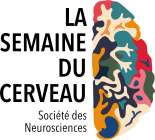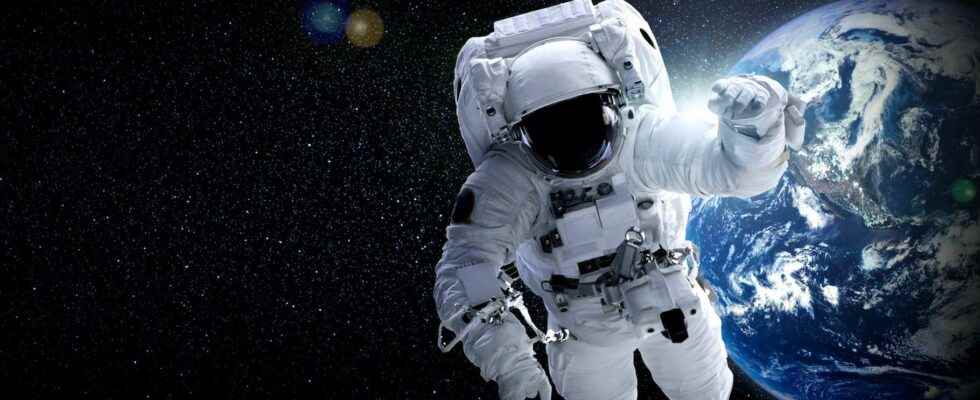You will also be interested
[EN VIDÉO] The astronomical and space events not to miss in 2022 The year 2022 will be marked by major space and astronomical events almost every month, a small recap of the most important is always welcome!
A space travel, this is not unusual. Researchers have been observing it for a long time now. During prolonged stays, the body of astronauts is under severe strain. Because humanity has evolved over millions of years according to the gravity who rules the earth. And that once in space and this gravity gone, our physiology is turned upside down.
the brain astronauts is no exception to these effects. This is confirmed today by University of Oregon researchers (United States) after studying MRIs performed on 15 astronauts who had lived for several months aboard the international space station (ISS). The astronauts lent themselves to the experiment just before embarking for space. And right after. But also one, three and six months after their return. All these images were then compared to those of the brains of as many control subjects who remained on Earth throughout the duration of the study.
What the researchers particularly wanted to study for the first time were the effects of such a stay on the perivascular spaces of the human brain. They observed that in novice astronauts — those whose first flight in space — these gaps increase. In more experienced astronauts, on the other hand, no such thing happens. “As if they had reached some kind ofhomeostasis »comments Juan Piantino, a professor at the University of Oregon School of Medicine, in a communicated.
Repercussions in space and on Earth
Remember that the perivascular spaces correspond to those spaces that surround the veins and arteries of our brain. Those who allow the circulation of liquidcerebrospinal. They are part of a kind of cleaning system. Researchers call it the glymphatic system . It is responsible for eliminating proteinsmetabolic while we sleep . Otherwise, they would accumulate in our brain.
On Earth, scientists have observed that these perivascular spaces widen as subjects age. But also when they develop a form of dementia. But, in space, despite the real differences observed on the MRIs, the researchers note that these modifications do not seem to have led to any symptomssuch as balance problems or memory loss.
This work is of course intended to ensure the safety of the astronauts who will leave for missions on the Moon. Or even, for missions to Mars . But the researchers point out that they could also help to better understand disorders that appear on Earth. Hydrocephalus, for example, which involves the circulation of cerebrospinal fluid. With the hope, in the future, of better diagnosing them and, of course, better treating them.
Lack of gravity alters the brain
What are the effects ofweightlessnesson the brain? A recent study looked into the question and revealed several changes in the brains of twelve astronauts who stayed in the International Space Station .
Article of Julie Kernpublished on 03/14/2022
The human body was built on Earth, where gravity nails us to the ground. An extended stay in space, a foreign environment for us Earthlings, force him to adapt . Scientists are carefully studying this phenomenon and its consequences.
To limit the loss of mass bone and muscle, the astronauts of the International Space Station (ISS) do exercises physicalbetween two scientific experiments. Weightlessness also acts on the brain. For the first time, the follow-up of twelve astronauts who traveled to the ISS has shown that their brains have somehow “rewired”. The study appeared in Frontiers in Neural Circuits.
The effects of weightlessness on the brain
For this collaborative project between the European Space Agency (ESA ) and Roscosmos, twelve astronauts spent MRIs before and after their stay in space. To study the structure and function of the brain, post-return MRI was done with a special technique called tractography which highlights neural pathways in the brain. ” Our study is the first to use this specific method to detect changes in brain structure after space travel. “, explains Floris Wuyts, researcher at the University of Antwerp (Belgium).
Because of the modifications, the researchers observed several of them. First in the motor region of the brain where the connections between neurons have changed. ” Motor regions are the centers of the brain where the commands of movementsare initiated. In weightlessness, an astronaut must adapt his travel strategies in relation to the Earth. Our study shows their brains have rewired, so to speak explains Andrei Doroshin, the first author of the study. This rewiring persists more than seven months after the astronauts return to Earth.
The corpus callosum, the junction between theright and left hemisphere also appeared different in the astronauts, but the scientists understood that it was not an intrinsic change in the corpus callosum but in the dilation adjacent cerebral vesicles which compress it a little more than usual.
As for muscle and bone mass, understanding the cerebral modifications due to weightlessness could allow the establishment of corrective measures, such as to fight against meltingmuscles. Humanity aims to stay in space ever longer and these prolonged space trips risk putting strain the human body .
In addition to the workshops offered throughout France by the Society of Neurosciences, at the origin of Brain Week, Futura highlights the latest scientific advances concerning our ciboulot. Cognition, psychology or even unusual and extraordinary stories, a collection ofitemsof questions answers and of podcast to be found all this week under the tag ” brain week» and on our social networks!

Interested in what you just read?
